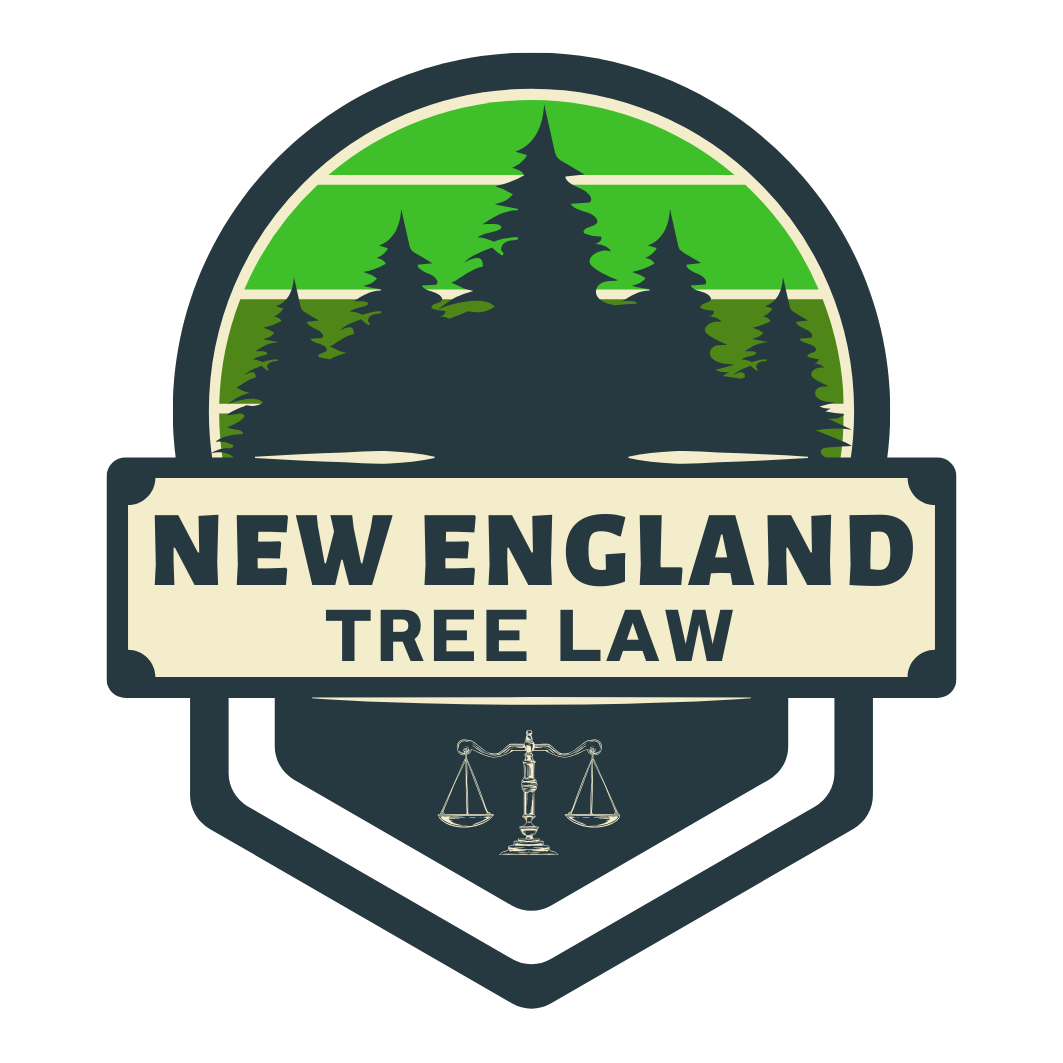Can I Sue If My Neighbor Cuts My Trees in Maine?
It happens far too often to Maine property owners: someone cuts down trees on their land without permission. The perpetrator of the tree-cutting may have been a neighbor, logger or tree service. The law refers to the unlawful cutting of trees as timber trespass — and Maine takes it seriously.
What Is Timber Trespass?
Timber trespass occurs when someone cuts, damages, or removes trees from property they don’t own and don’t have permission to enter. The tree cutting does not have to be knowing or willful to be unlawful. In fact, most timber trespass cases are the product of mistakes. The most common scenario involves a property owner clearing trees of their own land and accidentally crossing into a neighbor’s property. True cases of intentional “timber theft” are less common, but do still occur.
In Maine, the stakes are high: the state’s timber trespass law allows for double or even triple the value of the trees as damages in court. The Maine statute — 14 M.R.S.A. § 7552 — allows the injured property owner to select from several different types of damages, including the replacement cost of trees on residential properties. This means that a “mistake” in Maine can turn into a six-figure lawsuit for the cutting of trees.
Key Points About Maine Tree Cutting Law
Here are some highlights of Maine’s timber trespass statute, 14 M.R.S.A. § 7552:
Replacement cost of trees.
The statute specifically allows for the replacement cost as the measure of damages for “ornamental” trees and trees within 400 feet of a dwelling.
Replacement value can be significant for mature trees — often thousands of dollars per tree.
Double and treble damages.
If the cutting was willful or reckless, you can recover triple damages.
If it was negligent or mistaken or “without fault,” the law still allows for double damages.
Other categories of damages.
For timber trespass claims outside of the residential context — for example, vacant lots or trees that are primarily valued for lumber — replacement cost may not be an appropriate measure of damages. The statute therefore allows the tree owner to select from other types of damages, including:
The market value of the trees (aka stumpage value)
Decrease in property value
Statutory damages pursuant to the Maine forfeiture table
What Should You Do If Someone Cuts Your Trees?
If someone cuts your trees without your permission, you are entitled to compensation. Even if you are not a litigious person by nature, you should take several steps to make sure you preserve your legal rights:
Document everything.
Take many photographs of the area, including stumps, and save any communications with the neighbor or other responsible party. It is recommended that you take photos of each stump with a tape measure in order to document the stump diameters.Keep your cool.
Confronting the neighbor or tree service with anger generally does not help your cause. Moreover, remember that liability insurance (your neighbor’s homeowner’s insurance, or the contractor’s GCL policy) only covers accidents, not willful conduct. Making rash accusations can actually end up putting you in a worse position.
Verify the property line.
The threshold question to any timber trespass lawsuit: were the trees actually on your property? As the plaintiff, it is the tree owner’s burden to prove the location of the trees, no matter how obvious you think it may be. In some cases, even the defendant acknowledges that the trees were indisputably on the plaintiff’s property. In those situations, a survey may not be necessary.
In most other situations, the injured tree owner will need a survey to verify their property line. You may not need a formal survey plan prepared; it may be cheaper to instead have a surveyor just flag out the property line in question with survey stakes or flags.
Contact an attorney.
Timber trespass cases can be complex. They may involve multiple defendants, nuanced legal questions about damages, and coordinating with expert witnesses such as arborists. Many insurance companies and defense lawyers deal with tree law issues very infrequently. It is important to have an experienced timber trespass lawyer able to effectively advocate for your case.
Maine Timber Trespass Lawyers
At Welts, White & Fontaine, PC, we represent dozens of landowners each year in timber trespass claims. We understand the nuances of Maine tree law and can help maximize your legal recovery. We often represent clients on a contingency fee basis, meaning you don’t pay a legal fee unless you win your case. This helps the client reduce their financial risk, and gives the lawyer an incentive to recover as much money as possible.
Final Thoughts
Unauthorized tree cutting isn’t just an inconvenience—it’s a violation of your property rights, and Maine law is on your side. Contact us today if someone has cut your trees without permission.
🔗 Learn more about Maine timber trespass law here
📞 Contact us today to review your case—no cost, no obligation.

